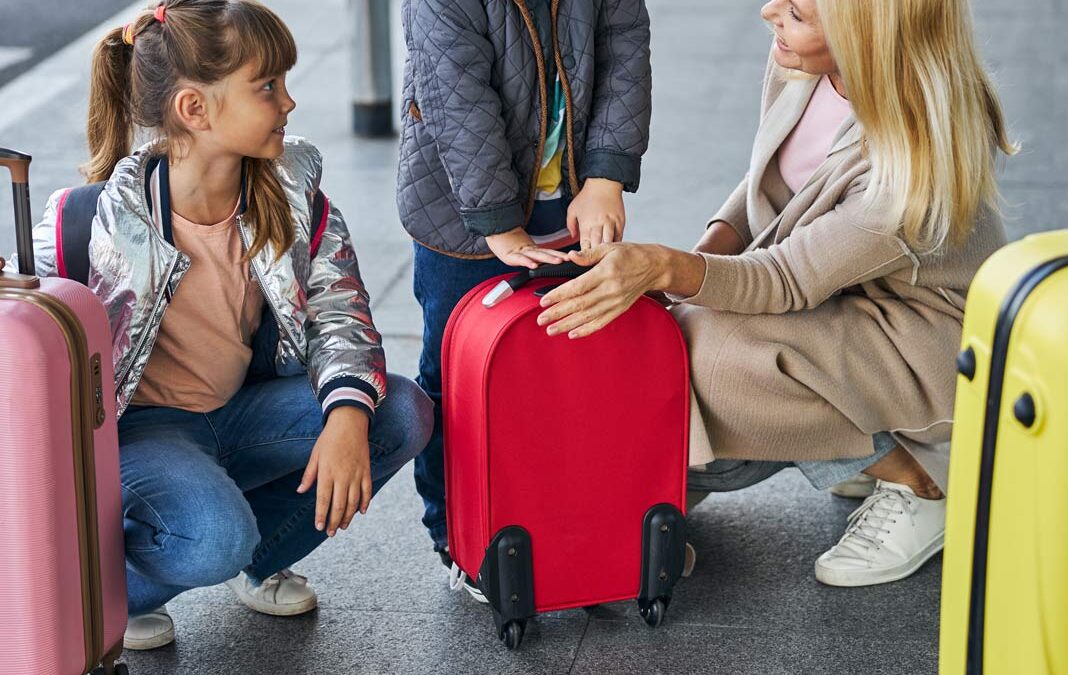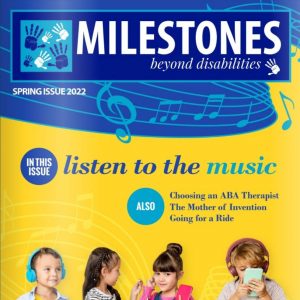
by IABA Team | Jul 12, 2022
Acetaminophen has always been the go-to drug for pain relief during pregnancy. Doctors often prescribed acetaminophen as an OTC drug for mild to moderate headaches due to the low risk associated with pregnancies. The widespread use of acetaminophen for pregnant women in pain, however, may be coming to an end.
Recent research conducted by both university researchers and the US National Institutes of Health links excessive acetaminophen use to autism and ADHD. While the conclusions of the initial studies need additional research for a definitive conclusion, the studies had eye-opening results.
Studying the Effects of Acetaminophen on Pregnancy Risks
A National Institutes of Health-funded study conducted by doctors from Johns Hopkins University called the Boston Birth Cohort Study was used for acetaminophen research. Part of the study examined 24,000 participants, 996 of whom were tested for acetaminophen levels and associated byproducts at birth.
The results of the study on acetaminophen were stunning. Children in the study were checked in on 8.9 years after birth. Of the 996 births, 25.8% had been diagnosed with ADHD, 6.6% had been diagnosed with autism, and 4.2% had been diagnosed with both. This correlates to 2.9X the risk for ADHD and 3.6X the risk of autism (compared to the lowest third of diagnoses in participants).
Researchers in the study noted the results supported earlier research linking acetaminophen to increased autism & ADHD risk during pregnancy. They also noted that future studies will be needed for a definitive conclusion. Some factors not used during the test (health of the mothers, preexisting conditions of the mothers, etc) may also need to be factored in for future research.
Is it Safe to Take Acetaminophen During Pregnancy?
This is definitely a question best left to your doctor. While the answer may be somewhere along the lines of ‘use very sparingly,’ some unanswered questions make this difficult to answer. Researchers and doctors are questioning and studying the impact of acetaminophen and other drugs taken early during pregnancy versus late in pregnancy.
Without conclusive research, there is no ‘recommended dose’ for doctors to prescribe. Talking to your doctor is the only way to get a good answer to this question. Your doctor knows you and your needs better than general internet information ever will. If you are experiencing pregnancy-related pain, please talk to your doctor before taking any OTC medications!
ABA Therapy from IABA Consultants
If you have questions regarding autism treatment, education, or plans to use ABA therapy, we are here for you! Our goal is to make sure no family is turned away due to financial constraints. Our therapy team would love to talk to you. Find the location closest to you and give us a call. We’re here for you.

by IABA Team | Jul 5, 2022
Long trips and vacations with kids can be difficult. Keeping a child occupied and calm during a trip requires patience and preparation. Keeping a child with autism occupied and calm during a trip may require some extra patience and planning.
This article is going to go over tips, tricks, and good general information on traveling with an autistic child. The two sections in this article will include information on road trips and air travel, as both have unique challenges.
Tips for Flying with a Child with Autism
Air travel is a big change for any child with autism. The sensory overload that accompanies every flight can be a huge challenge. The noise, the pressure, the small area, and the regimented process are all obstacles that a family will need to prepare for before a flight.
Before flying with an autistic child, you will want to consider taking the following actions:
- Prepare Weeks (or Months, if possible) Ahead. Talk with your child’s therapist or doctor about how to best start the process of preparing for a flight. Getting a plan together early on will help remind you about things you may need to prepare your child for.
- Create a Calendar. Having a visual indicator for your child to see indicating the upcoming trip can help them prepare for the change.
- Talk to Your Child About the Flight. Go over all the information about planes, airports, and travel you have planned with your child before the trip. Ask your child questions about the trip and make sure they have an understanding of the upcoming trip.
- Pack Essentials. Make sure to pack any of your child’s favorite toys, activities, and snacks before the flight. Remember that liquids over 3oz. cannot be brought through airport security!
- Pack Entertainment. Make sure your child has their favorite long-term toy or activity-packed. Focusing on something they love can make the long trip seem much shorter.
- If Your Child Has Special Needs: Talk to the Airline or Airport Before Your Flight. If your child needs special treatment or has other needs not normally provided or permitted by airlines, make sure to call them as early as possible! Airlines can be very accommodating, so make sure to talk to your airline about any and all of your child’s needs.
- Do a Practice Airport/Airline Security Run. Talk to your child’s therapist or pediatrician about the best ways to simulate an airport or airport security. Devise a plan and make sure your child is as prepared as they can before the real thing.
Road Trips & Autism
Taking a trip or going on a car vacation is much easier than flying for a child with autism. This doesn’t, however, mean it will be a walk in the park!
Leaving home and routine behind is difficult for children. Taking a child with autism out of an expected routine and schedule will take some preparation to mitigate emotions.
Just like with flying, there are some things you can do prior to a road trip to help ease the apprehensions of your child:
- Create a Calendar. Giving your child a visual indicator for when they will leave home can help them understand when the trip will start.
- Talk to Your Child & Communicate the Trip Plans. Creating an understandable narrative around where & why you are traveling can help your child understand what is happening. Ask them questions about the trip, answer their questions about the trip, and be sure to emphasize the things they will enjoy!
- Have Your Child Help Prepare for the Trip. Helping mom or dad is always fun, especially when it’s for something special. Having your child help you with packing or preparing the car for the road trip may be a great way to imbue an understanding of what to expect.
- Show Pictures of Hotels or Houses You’re Staying At. Make sure to familiarize your child with your destination and what they can expect when you get there. If you are staying with relatives, contacting them to prepare a room, followed by sending pictures of the prepared space, can make your child understand where they are staying is safe.
- Pack the Essentials. This is imperative for any road trip–a car has fewer accommodations than a plane, namely, there are no snacks & no bathrooms. Be sure to pack all of your child’s favorite toys and activities along with a cooler filled with favorite snacks & drinks.
- Schedule Gas Station/Rest Area Stops. Letting your child know when you will be stopping can help them understand the length of the trip. Creating a visual calendar of stopping times/points can help even more.
Make sure to make your car as comfortable as possible for any road trip. Bringing favorite comfy blankets or pillows can help your child feel more at home in the car.
ABA Therapy from IABA Consultants
If you have questions regarding autism treatment, education, or plans to use ABA therapy, we are here for you! Our goal is to make sure no family is turned away due to financial constraints. Our therapy team would love to talk to you. Find the location closest to you and give us a call. We’re here for you.

by IABA Team | May 23, 2022
School is almost out for summer. This doesn’t mean that your child will need to be at home all summer. There are many summer programs, activities, and events that are designed for children with autism in mind.
Before looking at fun activities and programs, however, be sure to talk with your child’s therapist. They may have some great summer programs that could be a great option.
Summer School and Therapy
Many autism and ASD programs don’t follow a typical school schedule. If your child attends a school or clinic that offers year-round care and therapy, see what they offer.
Before signing up for any summer school or therapy plans, however, you may want to ask a few questions:
- Will my child have the same instructor or teacher?
- Are the hours the same?
- What differences are there between summer & school year programs?
- Is the program the same?
- Is the provider (both for teachers & insurance) the same?
Of course, these questions may not be necessary if your child attends a year-round school or clinic. Always be sure that year-round schools offer the same services in summer–changes could lead to some behavioral hiccups.
Events & Festivals
We’ll preface this by saying that larger events are not for every child with autism. Big crowds and big noises can lead to sensory discomfort that could easily be avoided by not attending specific events (like music festivals or sporting events).
With that said, there are tons of events that go on locally every summer. Things like:
- Farmer’s markets
- Arts & crafts events
- Outdoor sales
- Certain areas or events at county fairs
Be sure that your child is OK with any expected noises or other sensory overloads that could be present at a given event. If you are unsure what an event entails or how big the expected crowd is, call the event organizer. Some events may have safe areas or activities specifically designed for children with autism.
Fun Summer Activities at Home
Of course, you can always set up some great summer activities for your child in their favorite comfort zone–home. If you child shows interest in specific types of activities, the following list may get you started towards creating some amazing activities:
- Camping (not necessarily overnight–tents and sleeping bags are fun any time)
- “Pool” days (inflatable pools, sprinklers, etc)
- Picnic days (help with packing the picnic and eating in the yard)
- Art activity days (coloring, painting, chalk, play-doh, etc)
- Rainy day reading or movies (snacks & entertainment)
These activities are just the tip of the iceberg. If your child has interests or loves activities that aren’t on this chart… find a way to incorporate them into their summer schedule!
ABA Therapy from IABA Consultants
If you have questions regarding autism treatment, education, or plans to use ABA therapy, we are here for you! Our goal is to make sure no family is turned away due to financial constraints. Our therapy team would love to talk to you. Find the location closest to you and give us a call. We’re here for you.

by IABA Team | May 19, 2022
IABA Consultants was recently featured in the spring 2022 issue of Milestones magazine. Click the image below to check out the article!


by IABA Team | May 16, 2022
Earlier this year, we wrote an article about Going Back to School for Kids with Autism. Believe it or not, this school year is almost over! That’s why we wanted to come back to this topic but with an obvious twist: reversing the topic.
This article is meant to provide some tips and information regarding easing children with autism back into a summer schedule. Some children with autism may be in year-long plans, so be sure to talk to your child’s therapist about any breaks or scheduling concerns you may have.
Develop a Transition Plan
Just like going back to school, devising a plan to transition from school to summer is crucial for easing a child into a new schedule. Talk to your child’s school or therapist about what are the most important things to keep in mind for summer.
Things like behavior practices and teaching methods should be consistent between parents and teachers. A drastic change in how behavior is handled from school to home can be damaging to your child’s care plan.
Taking Over for Teachers
Making a list of your child’s needs is an important step toward sending them into a comfortable school environment. Likewise, reading notes from and talking to your child’s teacher can update you on certain behaviors and changes that occurred over the course of the school year.
Make a list of behaviors and activities to keep front of mind for your child during summer break. This can help you think quickly if a problematic behavior or situation arises.
Easing into a Summer Schedule
For some autistic children, transitioning into a different schedule can be very difficult. Make sure to ease your child into a summer setting. This means keeping some degree of consistency with bedtimes, mealtimes, activity times, and other daily activities and routines.
Talking to your child’s teacher or therapist about in-school routines can also help you devise a schedule that makes sense to your child. Find out how long certain activities go on and build a summer schedule around that.
Changing into a full-on summer routine doesn’t have to be the option. New summer activities can replace school activities in the same timeframe. Replacing a teacher’s activity with an outdoor play schedule or indoor activity during the same time period can work wonders when it comes to continuity.
Vacations
Depending on a child’s sensitivities, vacations can be the hardest thing about summer when it comes to making a child feel comfortable. It’s hard to simulate a vacation and vacation schedules don’t usually resemble a regular daily routine.
Make sure to have visual aids or anything that will help your child understand your family is going to a fun place away from home a few weeks prior to any trip. Cementing an understanding is very important for a smooth transition.
Be sure to make sure that anywhere you stay or visit knows any special needs you have before going. If your child has special needs be sure to find lodgings and activities that can accommodate those needs.
Most importantly, be sure to make a list of everything your child may want or need on your trip. Favorite toys, objects, snacks, and other things may help your child transition to somewhere new.
Be sure to talk to your child’s therapist or pediatrician before making any vacation plans. They could have insight and information you may not think of on your own.
ABA Therapy from IABA Consultants
If you have questions regarding autism treatment, education, or plans to use ABA therapy, we are here for you! Our goal is to make sure no family is turned away due to financial constraints. Our therapy team would love to talk to you. Find the location closest to you and give us a call. We’re here for you.




